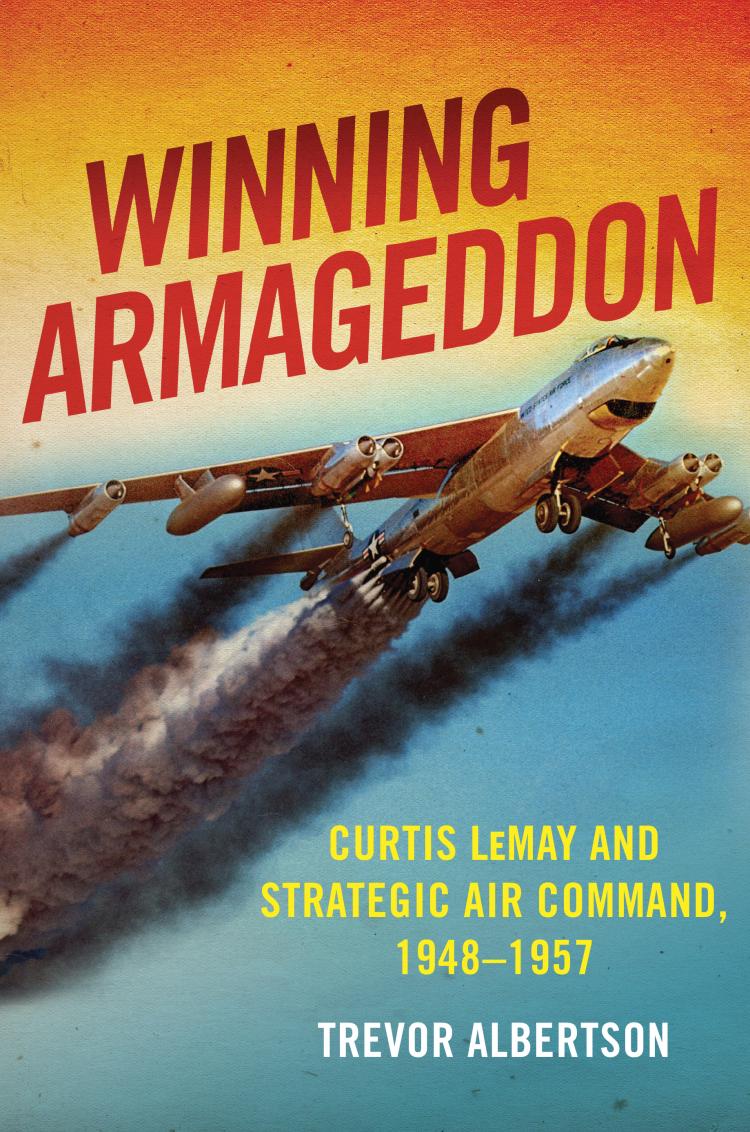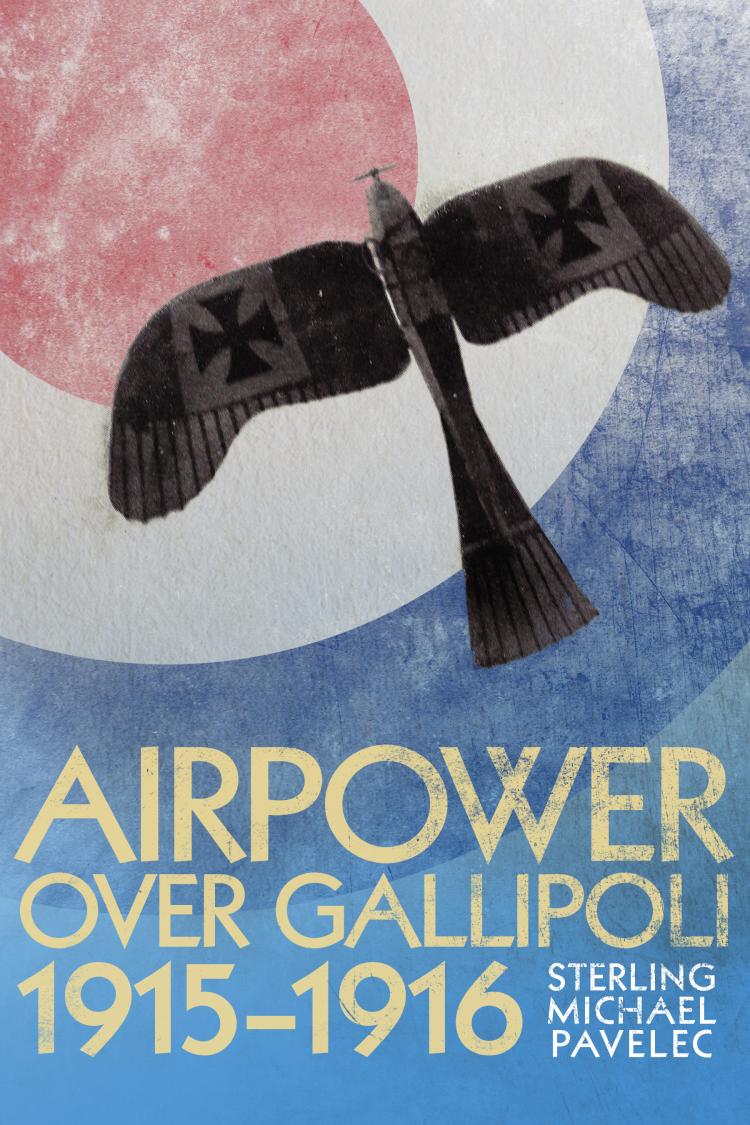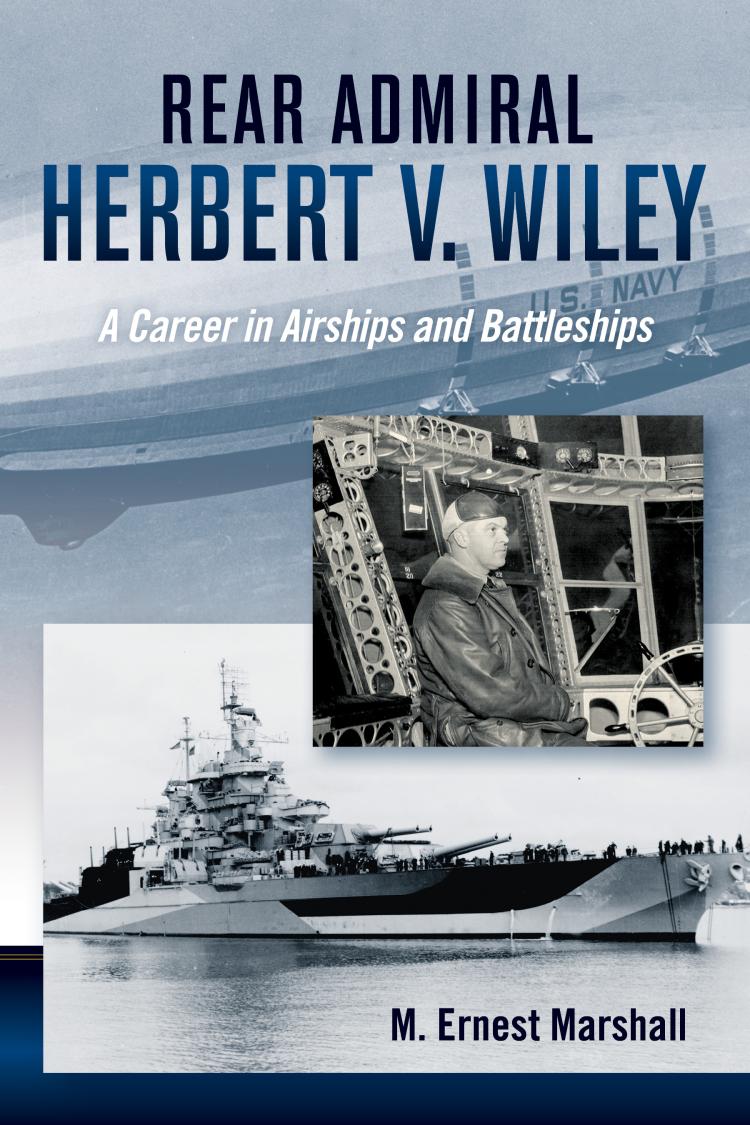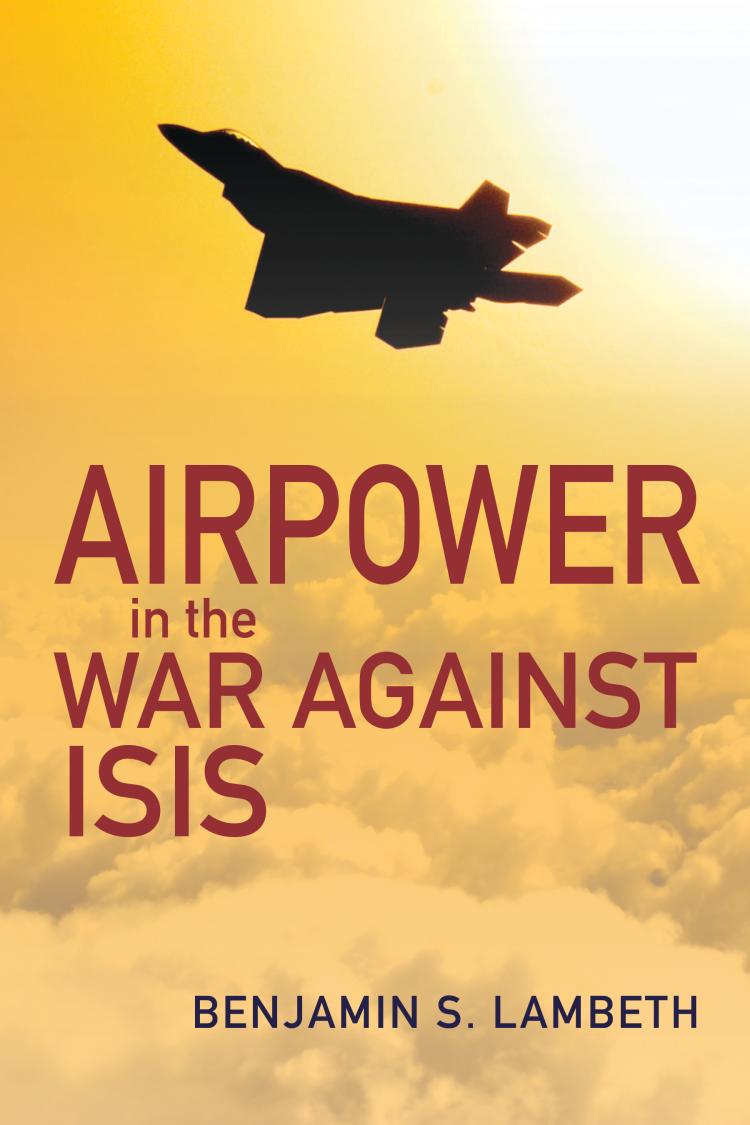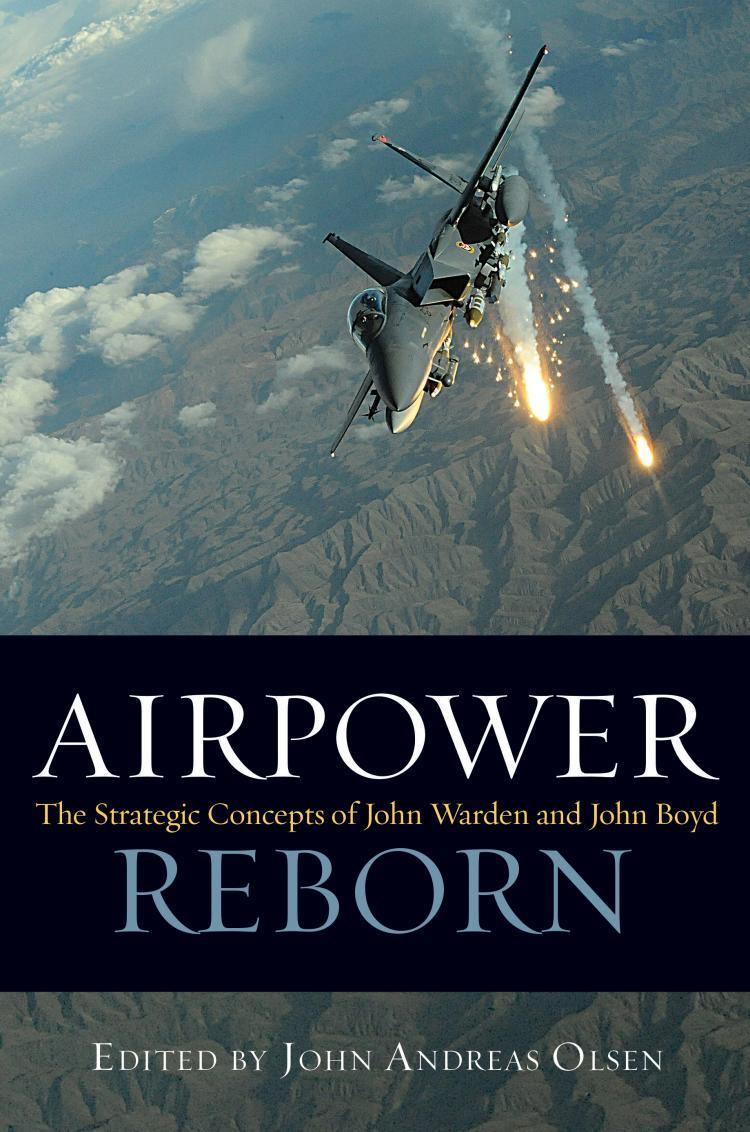Winning Armageddon
"Curtis LeMay and Strategic Air Command, 1948-1957"
- Subject: Military Aviation History YouTube Channel - Reading List | Clear the Decks Up to 80% OFF
- Format:
Hardcover
- Pages:
304pages
- Published:
May 15, 2019
- ISBN-10:
1682474224
- ISBN-13:
9781682474228
- Product Dimensions:
9 × 6 × 1 in
- Product Weight:
22 oz
Hardcover $13.20
Overview
Winning Armageddon provides definition to an all-too-long misunderstood figure of the Cold War, General Curtis E. LeMay, and tells the story of his advocacy for preemptive nuclear strikes while leading the U.S. Air Force’s Strategic Air Command. In telling this story, Trevor Albertson builds for the reader a world that, while not in the distant past, has been forgotten by many; the lessons of that past, however, are as applicable today as they were 65 years ago.
This work brings to life the challenges, fears, and responses of a Cold War United States that grappled with a problem that did not have a clear solution: nuclear war. LeMay argued for striking first in a potential nuclear conflict—but only if and when it was clear that the enemy was preparing to launch their own surprise attack. This approach, commonly referred to as preemption, was designed to catch an attacker off-guard and prevent the destruction of one’s own nation. LeMay hoped that rather than plunging the world into a fruitless nuclear exchange he could diffuse the conflict at its outset.
About the Author
Editorial Reviews
“In this critical and provocative analysis, Trevor Albertson goes beyond the accepted narrative of Curtis LeMay as a gifted strategist and combat commander to argue that it was his pragmatism that shaped U.S. victory in the Cold War. For LeMay, even nuclear war was just another problem to solve. Preemption, retribution, and mass destruction were not terms to avoid, but were concepts to wargame and plan for in his new vision for the Strategic Air Command. Albertson’s book is essential reading for anyone interested in the history of airpower or of the Cold War.” —Lt. Col. Craig F. Morris, U.S. Air Force, assistant professor of history, U.S. Air Force Academy, and author of The Origins of American Strategic Bombing Theory
“Trevor Albertson has written a deeply researched study of a vital subject: preemptive nuclear war. His work follows the concept‘s development through the actions of a key advocate, Strategic Air Command’s General Curtis LeMay. The author makes a compelling case for LeMay’s singular role in physically and intellectually preparing America’s nuclear arsenal for instantaneous use against an impending Soviet attack. This original and important work addresses a rarely examined period in airpower and military history.” —Col. Edward A. Kaplan, USAF, General Hoyt S. Vandenberg Chair of Aerospace Studies, U.S. Army War College, and author of To Kill Nations: American Strategy in the Air-Atomic Age and the Rise of Mutually Assured Destruction
"In this critical and provocative analysis, Trevor Albertson goes beyond the accepted narrative of Curtis LeMay as a gifted strategist and combat commander to argue that it was his pragmatism that shaped U.S. victory in the Cold War. For LeMay, even nuclear war was just another problem to solve. Preemption, retribution, and mass destruction were not terms to avoid, but were concepts to wargame and plan for in his new vision for the Strategic Air Command. Albertson's book is essential reading for anyone interested in the history of airpower or of the Cold War." —Lt. Col. Craig F. Morris, U.S. Air Force, assistant professor of history, U.S. Air Force Academy, and author of The Origins of American Strategic Bombing Theory
"Trevor Albertson has written a deeply researched study of a vital subject: preemptive nuclear war. His work follows the concept's development through the actions of a key advocate, Strategic Air Command's General Curtis LeMay. The author makes a compelling case for LeMay's singular role in physically and intellectually preparing America's nuclear arsenal for instantaneous use against an impending Soviet attack. This original and important work addresses a rarely examined period in airpower and military history." —Col. Edward A. Kaplan, USAF, General Hoyt S. Vandenberg Chair of Aerospace Studies, U.S. Army War College, and author of To Kill Nations: American Strategy in the Air-Atomic Age and the Rise of Mutually Assured Destruction
“An important and insightful review of how Curtis LeMay and SAC built and maintained an effective nuclear deterrent. Naturally, any book on this subject will be contentious and provoking for some readers, but totally absorbing for others. – Most Highly Recommended” —FIRE
“Those seeking a fresh view of and new insights about the early days of the Cold War will find Winning Armageddon worthwhile.” —The Daily News
“Albertson makes clear the general’s attention to detail, concern for his troops and strong operational know-how. And he shows LeMay’s human side with his interest in auto racing and the outdoors. Albertson’s study is the preface to the Mutual Assured Destruction strategy ultimately adopted. Serious students of the Cold War should not miss Winning Armageddon.” —Green Valley News
“Trevor Albertson has written an important book reminding us of the nature of military leadership required for deterrence.” —Defense.info
“With a striking image on its cover of a B-47 strategic bomber taking off with full rocket assist, Winning Armageddon is an excellent description of the often-controversial commander during the years from 1948 through 1957. To many, LeMay’s leadership as SAC commander defined the beginning of the Cold War. Author Trevor Albertson’s 304-page publication does a great job telling the LeMay story, which has been all but forgotten…. The author offers a fresh perspective of a period of USAF history that I thought I knew well. I left this story with even more understanding and respect for SAC Commander General Curtis LeMay” —Flight Journal
“The author provides an excellent discussion of the political and military interactions within the United States that led to the creation of SAC and the development of its role in United States foreign policy…. Those interested in the political and military aspects of the start of the Cold War will find this book to be a well-written introduction to the very complicated problem of nuclear weapons control—a problem that kept evolving as atomic weapons and delivery systems were upgraded and world political instability grew.” —The Journal of America’s Military Past
“Winning Armageddon is readable and provocative.” —Air & Space Power Journal
“The book is an excellent contribution to the historiography of the early Cold War, Strategic Air Command, and LeMay, making it a must for any student of the cold war. Albertson helps provide more insight into Strategic Air Command leadership during LeMay’s tenure while illustrating the commander’s thought process and quiet, yet aggressive, style of leadership. The author’s excellent use of primary sources adroitly illustrate his thesis and fills a void in the current historiography. The book is a worthy and needed addition to the current historiography regarding the Cold War and strategic nuclear bombardment.” —The Strategy Bridge
“The book is an excellent contribution to the historiography of the early Cold War, Strategic Air Command, and LeMay, making it a must for any student of the cold war. Albertson helps provide more insight into Strategic Air Command leadership during LeMay’s tenure while illustrating the commander’s thought process and quiet, yet aggressive, style of leadership. The author’s excellent use of primary sources adroitly illustrate his thesis and fills a void in the current historiography. The book is a worthy and needed addition to the current historiography regarding the Cold War and strategic nuclear bombardment.” —The National Interest
“Well researched and effectively presented, Albertson’s work successfully illustrates how LeMay built SAC into a powerful force capable of providing a decisive solution to his and America’s fears of nuclear war with the Soviet Union.” —Journal of Military History
“Winning Armageddon will engage and instruct anyone interested in nuclear weapons, strategic theory, the history of SAC, and Curtis LeMay.” —Michigan War Studied Review
“This is an essential read for those contemplating deterrence, and the use of nuclear weapons in the formulation of mutually assured destruction (MAD).” —The Navy
“Winning Armageddon is essential reading for the study of the early Cold War.” —Aerospace
“Winning Armageddon makes a substantial contribution to a rarely examined period in military history. Anyone interested in the history of air power, the Cold War, and Curtis LeMay will find this scholarly work a must-read.” —Military Review




